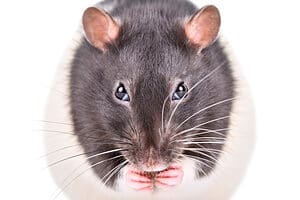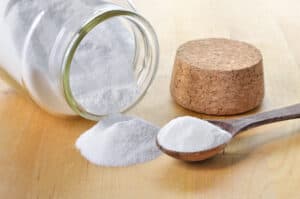Rats can be a nuisance when they invade your home, seeking shelter and food. Aside from inhumane traps, strong scents can be an effective solution to combat minor rat issues in your house. These smells can be used in areas around the home where rats are likely to nest, and they can help keep them away. Rats have a heightened sense of smell, so many scents that seem mild to us can be potent to them. This ultimately makes certain aromas great rat repellents.
Whether you are a homeowner looking to keep rats away or you own a pet rat and want to avoid offending him, here’s a list of the top 16 smells rats hate the most.
1. Peppermint
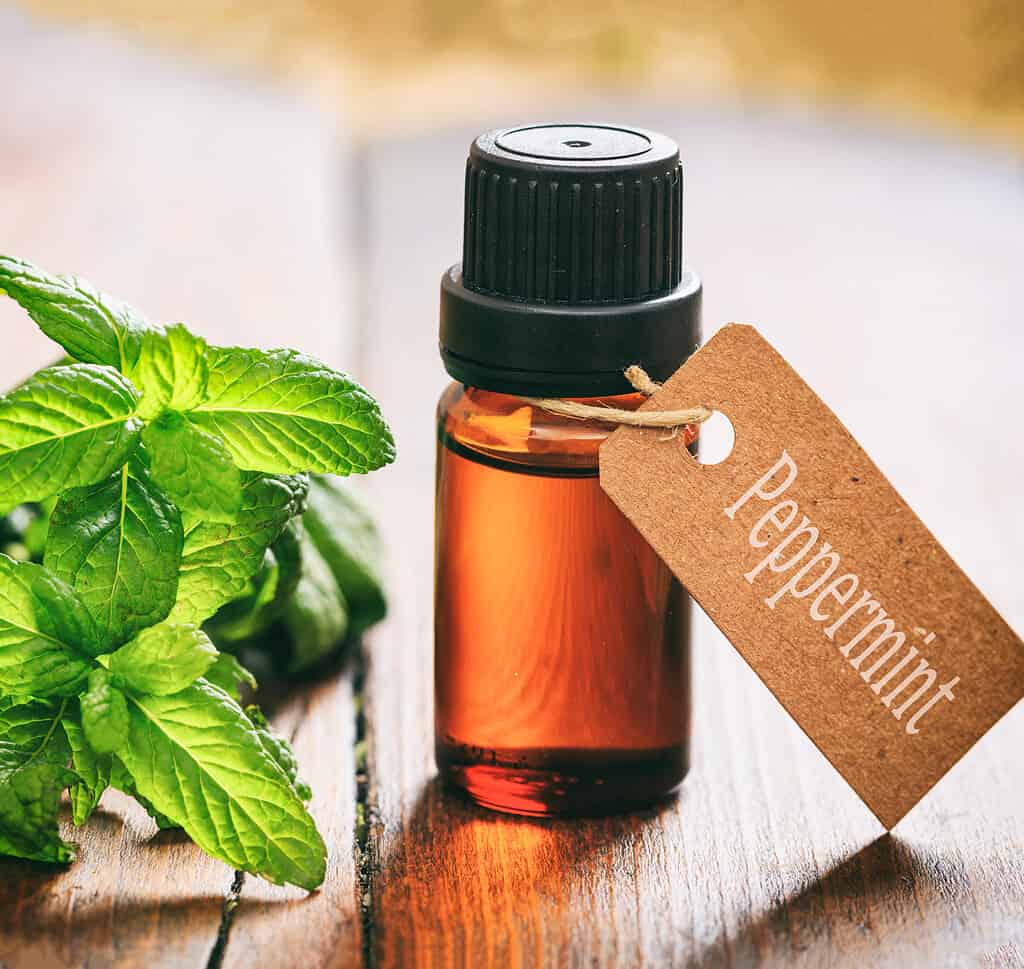
Peppermint essential oil naturally helps to repel rats, since the smell is overpowering for them.
©iStock.com/Rawf8
The invigorating smell of peppermint oil might be pleasant for you, but rats dislike it. The more potent the peppermint oil, the more it will irritate a rat’s nasal passages. Peppermint oils are a great natural repellent for rats and when used appropriately, can help keep rats away from certain parts of your home.
It’s recommended to use pure peppermint oil that hasn’t been diluted. You can soak cotton balls in the oil and leave them in nooks and crannies rats may frequent.
2. Mothballs

Rats hate the smell of mothballs, although they can be hazardous if used incorrectly.
©Bowonpat Sakaew/Shutterstock.com
Mothballs are an old-school method used to repel moths. The strong chemical smell they give off also makes them effective repellent for rats, but it is also toxic to them. This is because mothballs contain active ingredients like paradichlorobenzene or naphthalene, which are fumigants toxic to both animals and people. For this reason, mothballs should never be used incorrectly, as they can be hazardous to our health, our pets, and the environment.
3. Garlic
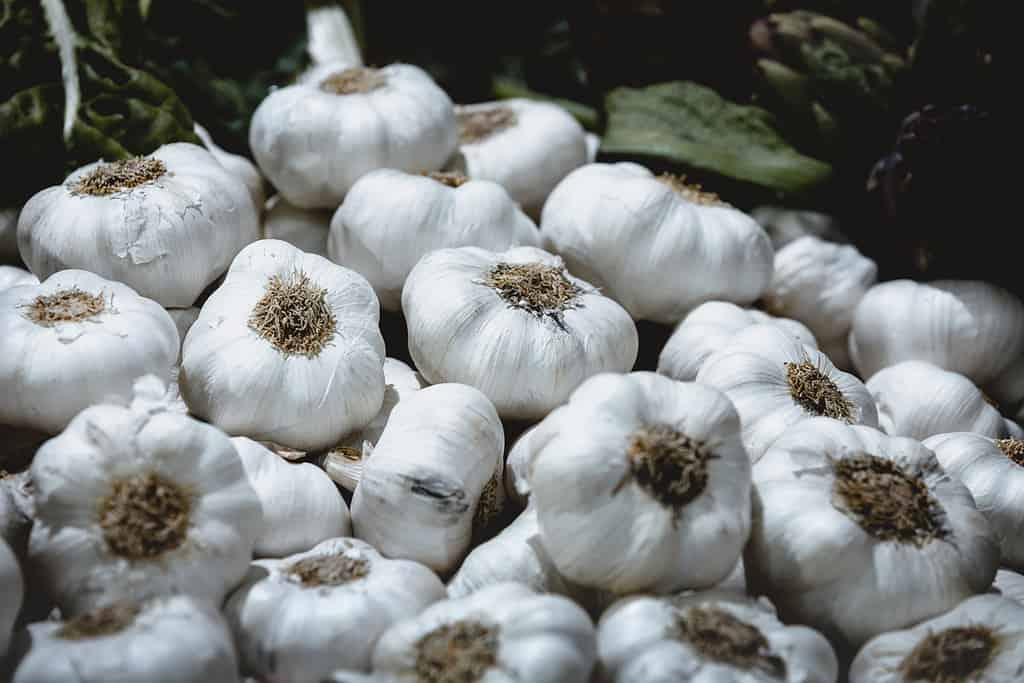
Crushed garlic cloves can be used to repel rats in constricted areas.
©Carl.Salisbury/Shutterstock.com
Many rats despise the smell and taste of garlic, including the plant itself. This means that you can use garlic cloves to repel rats. However, garlic is more potent when the cloves have been broken up to release the potent, lingering smell. Keep in mind that if you do use garlic to repel rats, you might also begin smelling the garlic, depending on where you placed it.
4. Household Ammonia

Our household products may contain ammonia, which is a smell that rats tend to avoid.
©Sergio Rojo/Shutterstock.com
Many of the cleaning products that we use in our homes contain ammonium ions which rats hate. The smell of ammonia is too strong for a rat’s respiratory system to handle, making it an effective repellent. Certain cleaning products will have a higher ammonia concentration than others, and rats do not like the pungent smell it gives off.
5. Clove Oil
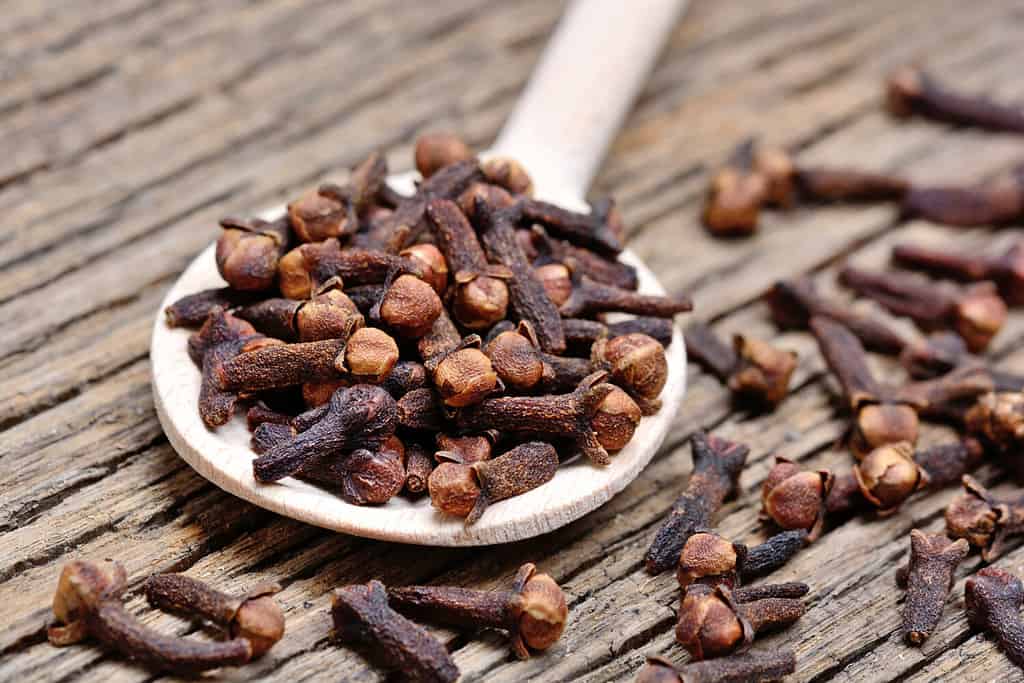
The smell of cloves dried flower buds or oil is hated by rats, making it an effective repellent.
©DeeaF/Shutterstock.com
The strong smell of clove oil is hated by rats, so it can be used as a repellent. It is also a great chemical-free solution that helps keeps rats away from certain parts of your home. You can either soak cotton balls in clove oil and leave them in small spaces, or you can crush up the dried flower buds to release the strong smell.
6. Cayenne Pepper

Rats do not like the smell of cayenne pepper, or any sort of spicy foods and chili powders.
©Thanatip S./Shutterstock.com
Both the taste and smell of cayenne pepper (or any chilis) are an irritation to rats. Most rats will avoid any spicy things containing capsaicin, which can be used as a natural rat repellent. Rats especially avoid the powder form since it can cause a burning sensation when inhaled or ingested. You can find cayenne pepper, including powder form, in many grocery stores.
7. Citronella

Mosquitoes and insects aren’t the only ones who hate the smell of citronella. Rats avoid citronella as well.
©rawf8/Shutterstock.com
Rats generally hate citronella, which is often used to control mosquitos and certain insects. Burning citronella candles doesn’t seem to do much in terms of rat repelling, but the spray or oil form may keep them away. The strong citronella smell is overwhelming to a rat’s heightened sense of smell, so they try to avoid it.
8. Citrus Oil

The citrus scent of lemons and limes not only refreshes the home but can be used to repel rats.
©Viktory Panchenko/Shutterstock.com
Rats dislike any strong citrus smells and tastes. This includes the refreshing smell of lemons, grapefruit, and oranges in an essential oil form. Rats will try to avoid entering areas with an overpowering citrus smell. The smell of lemon or orange juice may not be as overpowering to a rat’s keen senses, which is why essential citrus oils are a better option. In a pure and concentrated form, citrus oils work well at naturally repelling rats, and they don’t smell bad like some other natural rat repellents.
9. Bleach
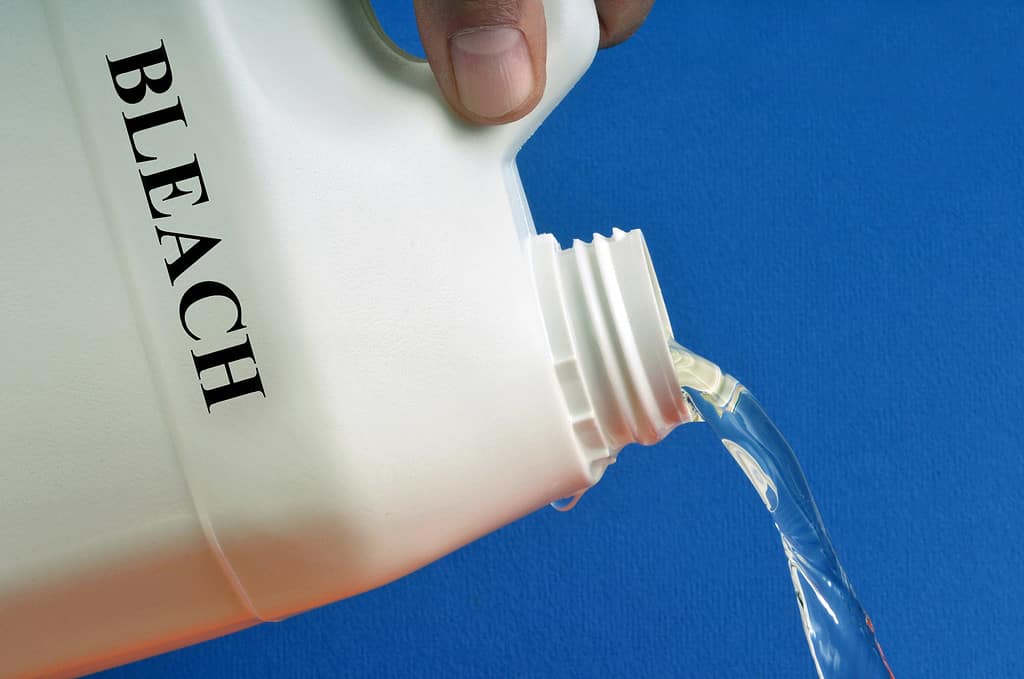
Bleach gives off a strong ammonia smell that is irritating to rats.
©iStock.com/Richard Villalonundefined undefined
Rodents hate the strong ammonia smell from household bleach. This smell is overpowering to a rat’s respiratory system, which gives it a repelling effect. Bleach is also irritating to a rat’s eyes and nose if they sniff it, so most rats won’t come near areas reeking of bleach. You can use a solution of bleach and water to repel rats in small runways.
However, you should take the proper safety measures. Bleach may also cause staining and damage to certain surfaces, so use it wisely.
10. Vinegar

Vinegar has multiple uses, and as a bonus, it can repel rats.
©focal point/Shutterstock.com
The strong smell of white vinegar is irritating to a rat’s senses. Use it in a concentrated form since diluted vinegar might not work as well. If you are looking to repel rats with vinegar, soaking cotton balls in a vinegar solution and placing them in constricted areas could work. When the smell eventually wears off, you will need to replace the cotton balls.
11. Eucalyptus oil

Rats hate the fragrant eucalyptus plant and its oils that are enjoyed for its aroma therapy benefits.
©iStock.com/Marina Denisenko
Many strong-smelling essential oils like eucalyptus are hated by rats. Although they may smell pleasant to us, it’s way too strong for rats to handle. This study found eucalyptus oil to be effective at repelling both male and female rats. Eucalyptus essential oils work the best since they contain the highest concentrations of eucalyptol. Dipping cotton balls in eucalyptus oil and placing them in small areas of the home can help keep rodents outside where they belong.
12. Coffee grounds
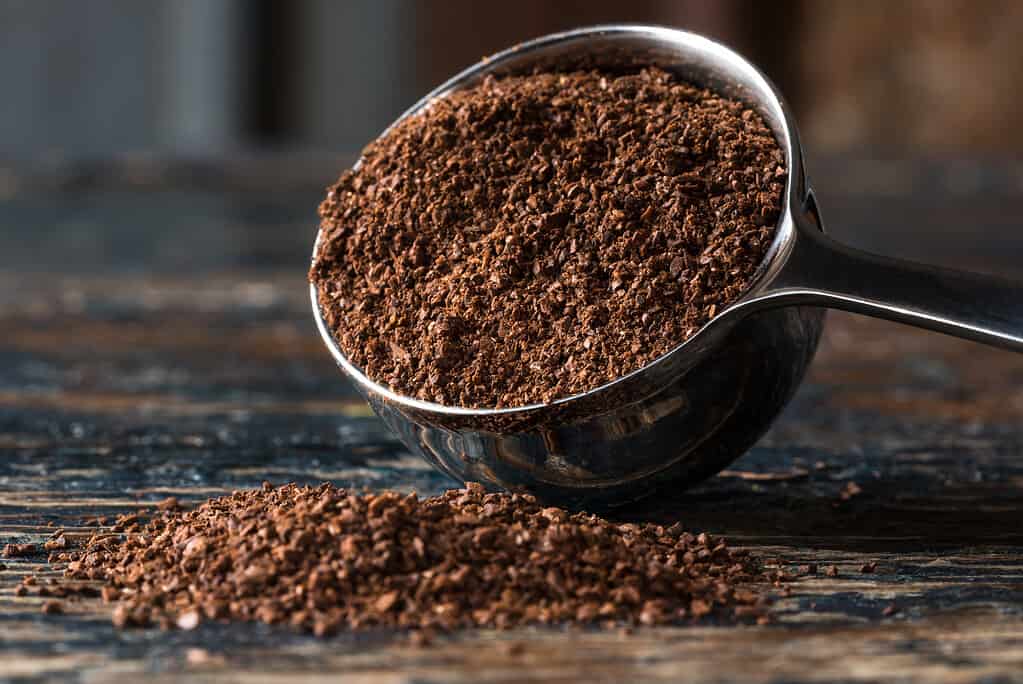
Rats don’t find the smell of coffee to be as inviting as we do.
©iStock.com/Michelle Lee Photography
The uplifting smell of coffee doesn’t seem to have the same effect on rats. Rats generally don’t like any strong coffee smells or food that contains caffeine. However, coffee doesn’t seem to be great at repelling rats. It is typically just a smell they don’t like and will avoid eating foods that taste or smell like coffee.
13. Raw Onions
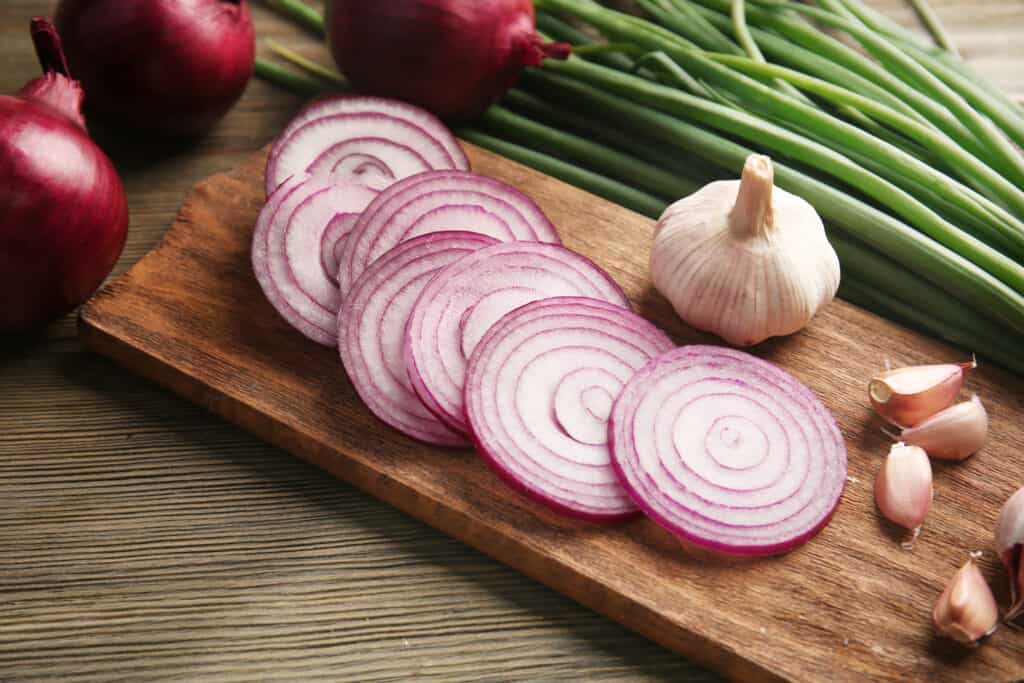
When sliced, onions can have a repelling effect on rats.
©Africa Studio/Shutterstock.com
The pungent smell of raw onions and its juice is gross to rats. It can even cause irritation to their nasal passages and eyes. This is mainly because onions contain propyl sulfoxide that is released when the onion is sliced open.
14. Black Pepper
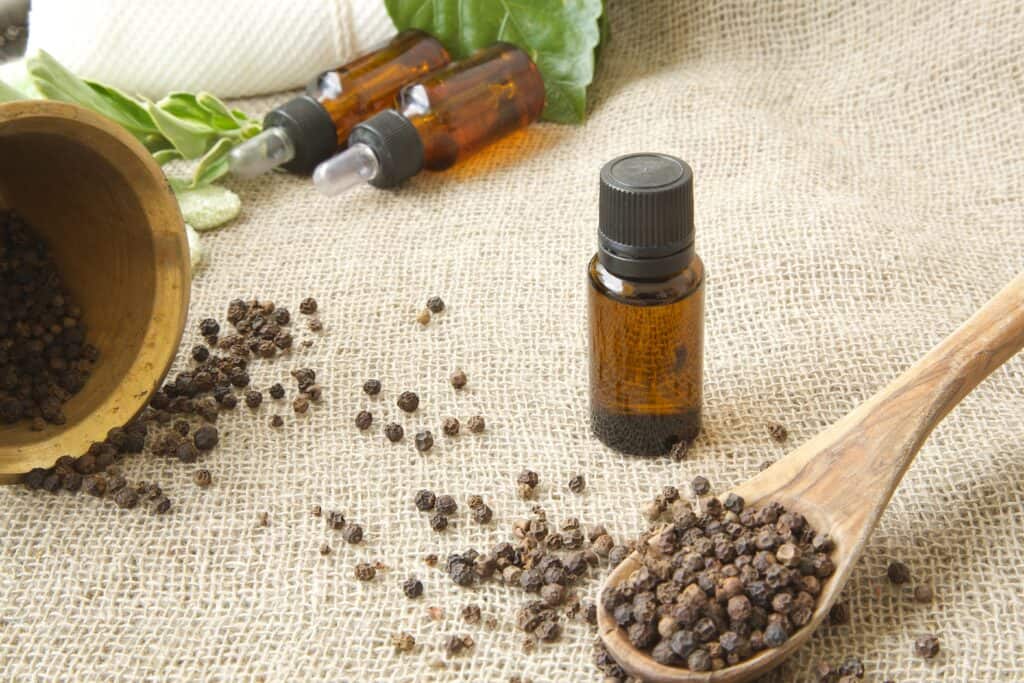
The smell of pepper is an irritant to a rat’s acute sense of smell.
©Tolikoff Photography/Shutterstock.com
Anyone who’s accidentally snuck their nose in a container of black pepper knows it can make you sneeze. Black pepper is particularly irritating to a rat’s nasal passages, and large amounts of black pepper can act as a repellent to rats. A rat is unlikely to stay in an area where with an irritating smell because it disrupts their ability to sniff out edible foods.
15. Lavender Oils

The relaxing smell of lavender essential oils is hated by rats.
©iStock.com/Olivka888
Lavender is another essential oil that can be used to repel rats due to its overpowering smell. The strong aroma from concentrated lavender oils is enough to stop any rat from nesting or approaching certain parts of your home. You can use lavender oil to naturally repel rats by placing soaked cotton balls in small areas where rats are likely to roam.
While it is known that lavender oils may repel rats if the scent is strong enough, more evidence is still needed to decide how lavender oils can affect rats and their behaviors. What we do know is that rats seem to hate strong lavender smells.
16. Sage

The smell given off by both white and green sage isn’t appealing to rats at all.
©iStock.com/creativeneko
Sage is a perennial herb that rats hate. However, this herb might not be effective as a repellent, even though rats generally avoid areas smelling of sage. Both green and white sage is disliked by rats, so you could place crushed leaves or sage oil in small crevices and cracks to potentially repel them.
Top 16 Natural Smells That Rats Hate
Below are the top five natural smells that rats seem to hate and could be used to repel them.
| Rank | Natural Smells |
|---|---|
| #1 | Peppermint |
| #2 | Mothballs |
| #3 | Garlic |
| #4 | Household Ammonia |
| #5 | Clove Oil |
| #6 | Cayenne Pepper |
| #7 | Citronella |
| #8 | Citrus Oil |
| #9 | Bleach |
| #10 | Vinegar |
| #11 | Eucalyptus oil |
| #12 | Coffee grounds |
| #13 | Raw Onions |
| #14 | Black Pepper |
| #15 | Lavender Oils |
| #16 | Sage |
The photo featured at the top of this post is © Heiko Kiera/Shutterstock.com
Thank you for reading! Have some feedback for us? Contact the AZ Animals editorial team.




